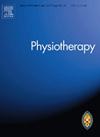卒中幸存者个性化身体活动干预的共同设计
IF 3
3区 医学
Q1 REHABILITATION
引用次数: 0
摘要
将知识使用者(如中风幸存者)的观点纳入干预制定过程可以提高其相关性和可行性。本研究的目的是:i)使用共同设计来确定“有效成分”,并为中风幸存者制定个性化的身体活动干预措施;ii)评估共同设计过程。方法采用四阶段综合知识转化方法(包括计划和研讨会)共同设计卒中后身体活动干预方案。招募知识使用者参与者(中风幸存者(n = 10)、护理人员(n = 3)和临床医生(n = 12))。知识使用者参与者(n = 25)和研究团队(n = 13)被邀请参加共同设计过程的调查评估。定量调查结果进行描述性分析。开放式回答被分组并总结为主要发现。结果知识使用者强调干预提供的灵活性、个人偏好的考虑、对失语患者友好的资源和持续的支持是重要的干预有效成分。已开发的身体活动干预包括共享决策过程、方案设置、持续支持和资源。在项目完成过程中,81%的知识用户报告了在共同设计过程中的高度信任、透明度和共享学习。调查的主要发现包括:1)共同设计和生活体验受到所有参与者的高度重视。2)输出改善中风护理是重要的。3)共同设计工作坊提供了一个相互尊重的氛围和公开讨论的机会。4)参与协同设计对个人有益。通过共同设计,确定了有效成分,并制定了卒中后综合身体活动干预措施。共同设计过程得到了所有人的高度重视,并增加了宝贵的见解。•共同设计是卒中康复干预发展的重要组成部分。•中风幸存者和临床医生强调,灵活性、个性化、有选择和持续支持是卒中后身体活动规划的重要积极因素。•展示信任、尊重、透明和共享学习的协同设计过程受到高度重视,对知识用户和研究人员都有益。本文章由计算机程序翻译,如有差异,请以英文原文为准。
Co-design of a personalised physical activity intervention for stroke survivors
Introduction/ aims
Incorporating the perspectives of knowledge-users such as stroke survivors into intervention development processes can enhance their relevance and feasibility. The aims of this study were: i) to use co-design to determine “active ingredients” and develop a personalised physical activity intervention for stroke survivors, and ii) to evaluate the co-design process.
Methods
A four-stage integrated knowledge translation approach (involving planning and workshops) was applied to co-design a post-stroke physical activity intervention. Knowledge-user participants (stroke survivors (n = 10), carers (n = 3) and clinicians (n = 12)) were recruited.
Knowledge-user participants (n = 25) and the research team (n = 13) were invited to participate in a survey evaluation of the co-design process. Quantitative survey responses were analysed descriptively. Open-ended responses were grouped and summarised as key findings.
Results
Knowledge-users highlighted that flexibility in intervention delivery, consideration of personal preferences, aphasia-friendly resources and ongoing support were important intervention active ingredients. The developed physical activity intervention included a shared decision-making process, programme set-up, ongoing support and resources.
High levels of trust, transparency and shared learning in the co-design process were reported by 81% of knowledge-users on project completion. Survey key findings included: 1) Co-design and the lived experience are highly valued by all involved. 2) Output that improves stroke care is important. 3) The co-design workshops provided a respectful atmosphere with opportunity for open discussion. 4) Participation in co-design can be personally beneficial.
Conclusions
Using co-design, active ingredients were identified, and a comprehensive post-stroke physical activity intervention was developed. The co-design process was highly regarded by all and added valuable insights.
Contribution of the Paper
- •Co-design is an important component of intervention development in stroke rehabilitation.
- •Stroke survivors and clinicians highlight that flexibility, personalisation, having options, and ongoing support were important active ingredients of this post-stroke physical activity programme.
- •Co-design processes that demonstrate trust, respect, transparency and shared-learning are highly valued and beneficial to knowledge-users and researchers.
求助全文
通过发布文献求助,成功后即可免费获取论文全文。
去求助
来源期刊

Physiotherapy
医学-康复医学
CiteScore
6.40
自引率
3.00%
发文量
377
审稿时长
82 days
期刊介绍:
Physiotherapy aims to publish original research and facilitate continuing professional development for physiotherapists and other health professions worldwide. Dedicated to the advancement of physiotherapy through publication of research and scholarly work concerned with, but not limited to, its scientific basis and clinical application, education of practitioners, management of services and policy.
We are pleased to receive articles reporting original scientific research, systematic reviews or meta-analyses, theoretical or debate articles, brief reports and technical reports. All papers should demonstrate methodological rigour.
 求助内容:
求助内容: 应助结果提醒方式:
应助结果提醒方式:


